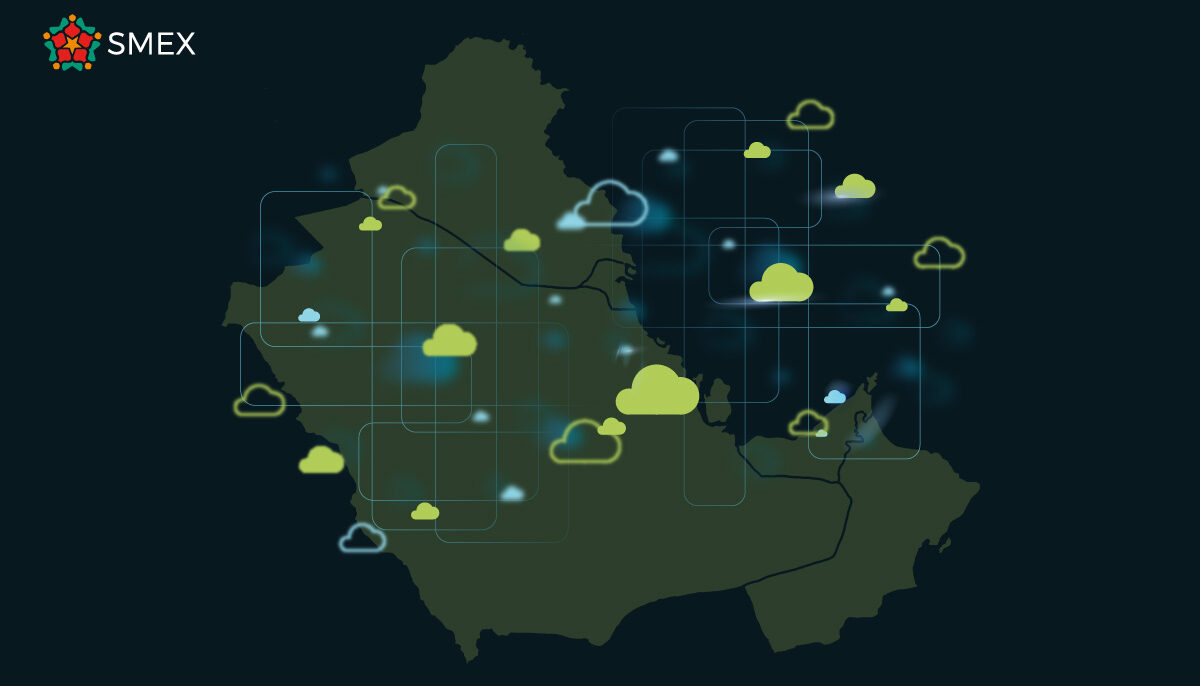Since 2018, an increasing number of companies, mainly from the U.S. and China, launched cloud regions and data centers in the Gulf, despite outcry from civil society groups over human rights violations and risks. This report maps the expansion of technology companies’ cloud and data center operations in countries of the Gulf Council Cooperation (GCC).
SMEX has covered aspects of this trend, raising, for instance, concerns about plans by tech giants Amazon and Google to construct data centers supporting cloud regions in Saudi Arabia and the UAE. Other digital rights organizations and media outlets also wrote about the potential implications of these projects, citing the highly restrictive control of internet activities, pervasive government surveillance, and prosecution of online speech. The focal point of this existing coverage was the activities of two U.S. tech giants (Google and Amazon) in Saudi Arabia and UAE, the largest economies of the GCC and two regional powers in WANA. However, a range of other actors are involved and companies other than Amazon and Google are also investing to build data centers and cloud infrastructure in the Gulf. This report maps such investments in all six GCC countries by nine companies that are some of the world’s largest in data center and cloud computing infrastructure. These companies are either U.S. based (Amazon, Equinix, IBM, Google, Microsoft, and Oracle) or Chinese (Alibaba, Huawei, and Tencent).
The global market of cloud infrastructure is increasingly controlled by three companies: Amazon (34%), Microsoft (21%), and Google (11%), which together controlled 66% of the worldwide cloud provider market in 2022. However, lesser known companies such as Oracle and Equinix are also prominent actors. They essentially specialize in providing digital infrastructure solutions for businesses and lease large amounts of data center space.
First, the report explains how data centers work and their functions, and why it matters from a human rights and data privacy perspective where a data center is physically located. The second chapter maps investments made by the nine companies in the GCC, focusing on growing cloud investments since 2018 and the political and economic factors underlying this trend. This section emphasizes the rapid growth in global data center infrastructure and cloud computing markets, and the increased demand created by the governments of the GCC through their national vision frameworks and digital transformation programmes. Finally, the report outlines the human rights risks that come with increased data center and cloud infrastructure in the Gulf as a result of weak data protection laws, GCC states’ digital authoritarianism, and the opaqueness in the ventures of the tech companies. The report concludes by providing recommendations for tech companies, civil society, and the U.S. Congress.
Key findings
- U.S. companies Amazon, Equinix, IBM, Google, Microsoft, and Oracle, and Chinese companies Alibaba, Huawei, and Tencent have all either launched cloud centers or announced future plans to launch cloud operations in the GCC. Their operations and plans cover the entire region. Saudi Arabia and UAE are the countries in which most data center and cloud region projects have been announced or started.
- All of the top 5 biggest cloud providers worldwide (Alibaba, Amazon, IBM, Google, and Microsoft) are among the companies investing in data center infrastructure in the GCC countries. The global cloud provider market is becoming increasingly concentrated between these companies, and they hold a lot of power and influence on a global scale. These companies are committing to supporting the GCC governments’ ambitions of digital transformation, and are largely providing the physical infrastructure necessary for their achievement.
- All the GCC countries are pursuing similar strategies when it comes to digitalization of society, economy and government. These strategies are outlined in national ‘vision’ frameworks and digital transformation programmes, where implementing eGovernments and becoming a hub for the digital economy are central objectives. Data centers are essential pieces of infrastructure to fulfill these ambitions of digital transformation, and are largely being provided by the outlined foreign companies.
- The geographical location of a data center matters because data is typically stored at the nearest data center, and because data is subject to the jurisdiction of its geographical hosting countries. Thus, as more data centers are located within the borders of the GCC countries, its governments will have legal control over an increasing amount of data. This will have consequences for how data is stored and managed across the WANA region.
The bottom line is that technology companies, whether U.S. or China based, are seeking profits in new markets, and their profit prospects are prioritized above their human rights diligence. With an emerging lucrative data center and cloud service markets in the GCC along with financial incentives, technology companies are turning a blind eye to their lackluster human rights track records. Importantly, the biggest tech companies, including those that claim to care about human rights, are failing to adequately protect these rights in their (cloud) business operations in the Gulf and the broader WANA region.
Read the full report below or download it from here.



